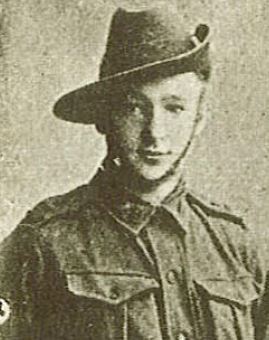HOPKINS, Edwin Swan
| Service Number: | 127 |
|---|---|
| Enlisted: | 18 August 1914 |
| Last Rank: | Sergeant |
| Last Unit: | 14th Field Ambulance |
| Born: | Ballarat East, Victoria, Australia, 13 February 1895 |
| Home Town: | Melbourne, Melbourne, Victoria |
| Schooling: | Not yet discovered |
| Occupation: | Salesman |
| Died: | Camberwell, Victoria, Australia, 3 December 1956, aged 61 years, cause of death not yet discovered |
| Cemetery: |
Springvale Botanical Cemetery, Melbourne |
| Memorials: |
World War 1 Service
| 18 Aug 1914: | Enlisted AIF WW1, Private, 127, 2nd Field Ambulance | |
|---|---|---|
| 19 Oct 1914: | Involvement Private, 127, 2nd Field Ambulance, --- :embarkation_roll: roll_number: '22' embarkation_place: Melbourne embarkation_ship: HMAT Wiltshire embarkation_ship_number: A18 public_note: '' | |
| 19 Oct 1914: | Embarked Private, 127, 2nd Field Ambulance, HMAT Wiltshire, Melbourne | |
| 4 Mar 1917: | Promoted AIF WW1, Sergeant, 14th Field Ambulance | |
| 17 Apr 1917: | Honoured Military Medal, 14th Field Ambulance. Commonwealth Gazette No 140 of 27 Aug 1917 |
Help us honour Edwin Swan Hopkins's service by contributing information, stories, and images so that they can be preserved for future generations.
Add my storyBiography contributed by Stephen Brooks
Edwin Swan Hopkins was one of the very first Australians to enlist in the AIF during August 1914.
He served at the Anzac landing on 25 April 1915 with the 2nd Field Ambulance and went right through the whole campaign until evacuated on 3 December 1915.
His older brother, 693 Sergeant Leslie Ralph Hopkins 31st Battalion AIF, was killed in action at Fromelles, officially on 21 July 1916, aged 23.
Edwin was promoted to Sergeant during March 1917 and was awarded a Military Medal soon after, “At LOUISENHOF FARM on 7th/14th March, 1917, whilst new posts were being pushed forward from GRASS LANE this road was continuously under heavy shell fire. Under the most trying circumstances he set an excellent example of bravery and devotion to duty, and proved himself a splendid leader showing conspicuous gallantry throughout.”
Edwin was given ‘special 1914 leave’ to return home during October 1918, on the basis that he had enlisted in 1914 and had been away from Australia for four years.









